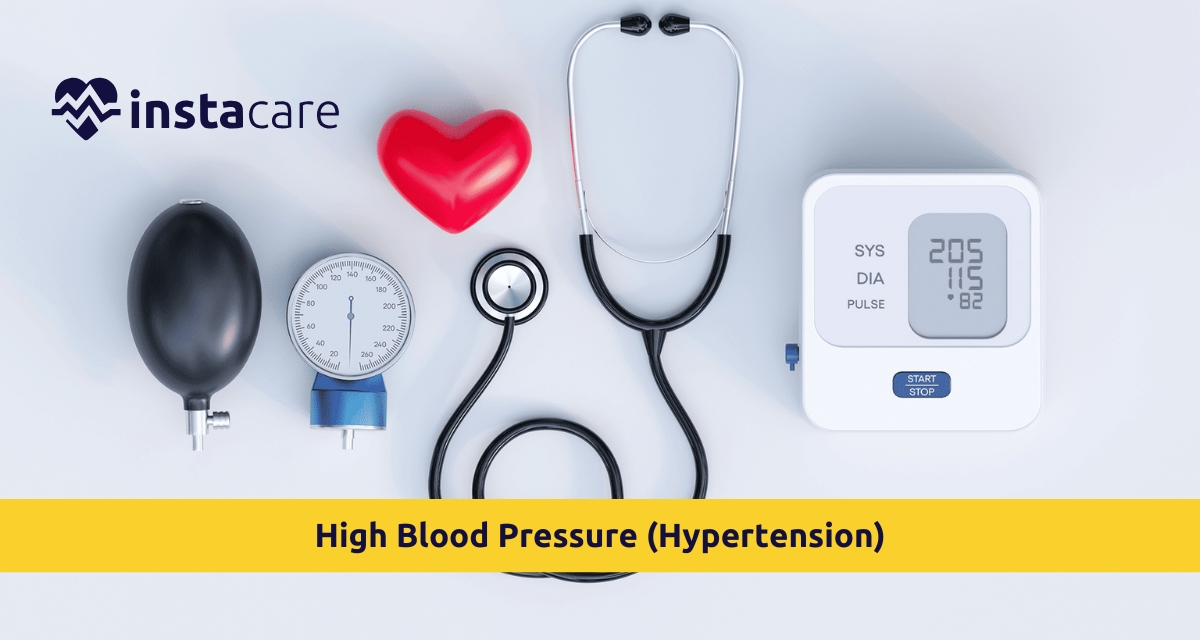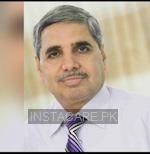High blood pressure (Hypertension), as it is more popularly known to the common man, is a very frequent ailment affecting millions of people. Sometimes dubbed a "silent killer," high blood pressure usually does not present with any palpable signs but can lead to deadly health scenarios unless treated adequately. There are vital elements regarding causes, symptoms, treatments, and ways of managing High blood pressure (Hypertension); therefore, good heart care is being ensured.
Hypertension Reading
Hypertension is a High blood pressure (Hypertension) reading in mmHg that persists continuously. Blood pressure is usually presented as systolic, when the heart beats, and diastolic, which represents the pressure when the heart rests between beats. Normal tension of blood pressure readings usually reads around 120/80 mmHg. Hypertension occurs when the blood pressure reading persists at or above 130/80 mmHg.
Causes of High Blood Pressure
The Causes of high blood pressure can often be many and varied. One can prevent high blood pressure by knowing the causes and better managing one's situation. Much of this may start with genetic predisposition; definitely, having a family history of hypertension increases your risk.
- Another critical variable is age; blood pressure increases with age due to the natural stiffening of arteries. Another massive contributor is obesity, which exerts much strain on the heart due to excess weight.
- This condition also tends to be aggravated by leading a sedentary lifestyle. Inactivity causes one to gain weight and causes high blood pressure.
- The diet also tends to bring about hypertension; consumption of high salt, low potassium, and increased alcohol intake tends to increase blood pressure.
- Chronic stress leads to temporary spikes in high blood pressure that may eventually contribute to hypertension.
Hypertension Symptoms
Many patients with hypertension will experience no symptoms whatsoever. Some patients report headaches, dizziness, shortness of breath, nosebleeds, or flushing. Often monitored blood pressure is critical because many individuals remain undiagnosed until complications develop. It is the lack of symptoms that makes hypertension particularly dangerous because, by the time Hypertension symptoms do appear, significant damage may already have occurred.
Hypertension Risk Factors
Knowing and understanding hypertension risk factors helps individuals take preventive measures. For example, the family history plays a critical role. Genetic predisposition increases risks quite substantially. Age is also a factor, and the increased risk of hypertension occurs in persons with ages more significant than 45 years.
Poor diet, lack of exercise, and smoking are lifestyle choices that can be pretty problematic for developing Essential hypertension. Other chronic conditions also result in high blood pressure; among them are diabetes and kidney diseases. Such persons have to monitor the levels closely.
Complications of Hypertension
Uncontrolled, highly many complications attributed to hypertension leave one a very unenviable life. At its worst condition, the condition leads to heart hypertensive disease. Here, it strains the heart and leads to heart attacks. High blood pressure also causes strokes since it may cause the bursting of blood vessels in the brain. Chronic hypertension leads to failure and, eventually, disease in the kidneys. It may cause damage to the blood vessels of the eyes, leading to disorders in vision. If all these complications are taken into consideration, it can be seen why hypertension needs proper management.
Control of High Blood Pressure
Hypertension Treatment
Management of hypertension and Hypertension treatment effectively is established on both lifestyle modifications and the use of medications. Lifestyle modification is the cornerstone in the treatment of high blood pressure. A level of physical activity should be maintained, as even a minimum of 150 minutes of moderate-intensity aerobic exercise has been established to benefit cardiovascular health. Maintaining a healthy weight would be another critical element; modest weight loss would significantly lower blood pressure levels.
Dietary changes are also part of the treatment for hypertension. Salt intake has to go lower. It should be below 2,300 mg, though this recommendation may not include a hypertensive person. It must be reduced below 1,500 mg.
Alcohol intake also has to be reduced. In men, the limit must not be crossed above two drinks in a day. The women, however, need to be below one. Smoking also needs to be stopped to promote wellness and decrease blood pressure.
Besides lifestyle changes, most would require Hypertension medication. There are typically four types:
Diuretics help remove sodium and water from a person's body, ACE inhibitors relax blood vessels, calcium channel blockers reduce the amount of calcium entering the heart and blood vessel muscles, and beta-blockers reduce heartbeat and heart workload. The proper drug most fits the individual's needs and disease condition.
Readings of Blood Pressure
It is essential for a hypertensive to know how to read blood pressure readings. Consistent monitoring will provide a better sense of track and thus handle the treatment accordingly. Blood pressure should be followed and recorded, preferably at home and in the doctor's office, so that it is accurate. Normal blood pressure is considered as less than 120/80 mmHg.
Classified average High blood pressure (Hypertension) is between 120-129/<80 mmHg, while hypertension stage 1 is classified as 130-139/80-89 mmHg. Hypertension stage 2 is diagnosed when readings reach 140 or higher/90 or higher mmHg. Knowing these classifications can help people understand their health status and the level of treatment needed.
High Blood Pressure Diet
Blood pressure can sometimes be managed relatively High blood pressure diet adequately through an overall diet size for hypertension. Among the diets, it has recommended taking fruits, vegetables, whole grains, and lean proteins which will be part of the DASH.
High quantities of foods with potassium will be necessary. These add up; their presence will balance the pressure from the high sodium content in the blood. Bananas, potatoes, spinach, and beans are easy sources of potassium.
Processed foods that have high sodium should be avoided. Therefore, reading the food's sodium content would be wise if one wants to follow a low-sodium diet. Hydration, including the intake of nuts and avocados, which are rich in healthy fats, also helps to better heart health.
Hypertension Prevention
Changing lifestyles and constant health checks prevent this. Some key preventions include physical exercises that ensure the cardiovascular system functions well. Try to make time for at least 30 minutes of moderate aerobic activity each day of the week. Second, the person ought to stick to a well-balanced diet with enough nutrients like potassium and fiber to prevent high blood pressure.
Other elements of hypertension prevention include maintaining an ideal weight since it can be one way of avoiding overstressing the heart and regular follow-ups in hospitals, where proper monitoring of one's blood pressure is done in case of any future mishap. Such individuals can then control themselves
with knowledge of high or low blood pressure.
Blood Pressure; High Blood Pressure and Low Blood Pressure
This variation makes it crucial to know the difference between Low and high blood pressure, as it indicates general health. Low blood pressure, also referred to as hypotension, is perilous in terms of health risks but fewer than hypertension. While low blood pressure brings symptoms such as dizziness, fainting, and fatigue, high blood pressure is associated with more serious medical conditions like Hypertensive heart disease and stroke; thus, it needs to be monitored and managed.
Lifestyle Changes for Effective Management
Some lifestyle changes improve blood pressure management. All individuals can engage in stress management techniques such as yoga, meditation, and deep breathing to reduce various stress factors, which have been proven to lower blood pressure. Sufficient rest should be ensured, and one should sleep 7 to 9 hours daily for good overall health.
A proper health check-up is fundamental in following up on the blood pressure and general health. It will show abnormalities in good time to be treated by the necessary interventions. One should, therefore, observe all the set treatments and lifestyle adjustments to manage hypertension effectively. Non-adherence to medication and dietary recommendations may worsen the condition and increase the risk of complications.
Education of Self and Others
Education in managing
High blood pressure (Hypertension) constitutes an essential measure in controlling hypertension. The informed management of the risk of developing the disease shall empower all individuals with control over their health. Sharing knowledge with family and friends creates a healthy environment to select healthier lifestyles. Community programs can also have massive responsibilities in teaching society about the blood pressure management campaign and risks associated with hypertension.
Conclusion
Hypertension is one of the most critical health issues that need to be taken care of with awareness and proactive management. An individual must understand the causes, symptoms, risk factors, and treatment options to manage their blood pressure better and avoid serious health complications. The three elements of maintaining healthy blood pressure levels and a healthy cardiovascular profile are regular monitoring, lifestyle modification, and following the treatment regimen.
Early diagnosis and intervention in the lives of those living with hypertension can significantly make a huge difference and make them live healthier and more fulfilling lives.
Please book an appointment with the
best Cardiologist in Lahore, Karachi, Islamabad, and all major cities of Pakistan through
InstaCare, or call our helpline at 03171777509 to find a verified doctor for your disease.











